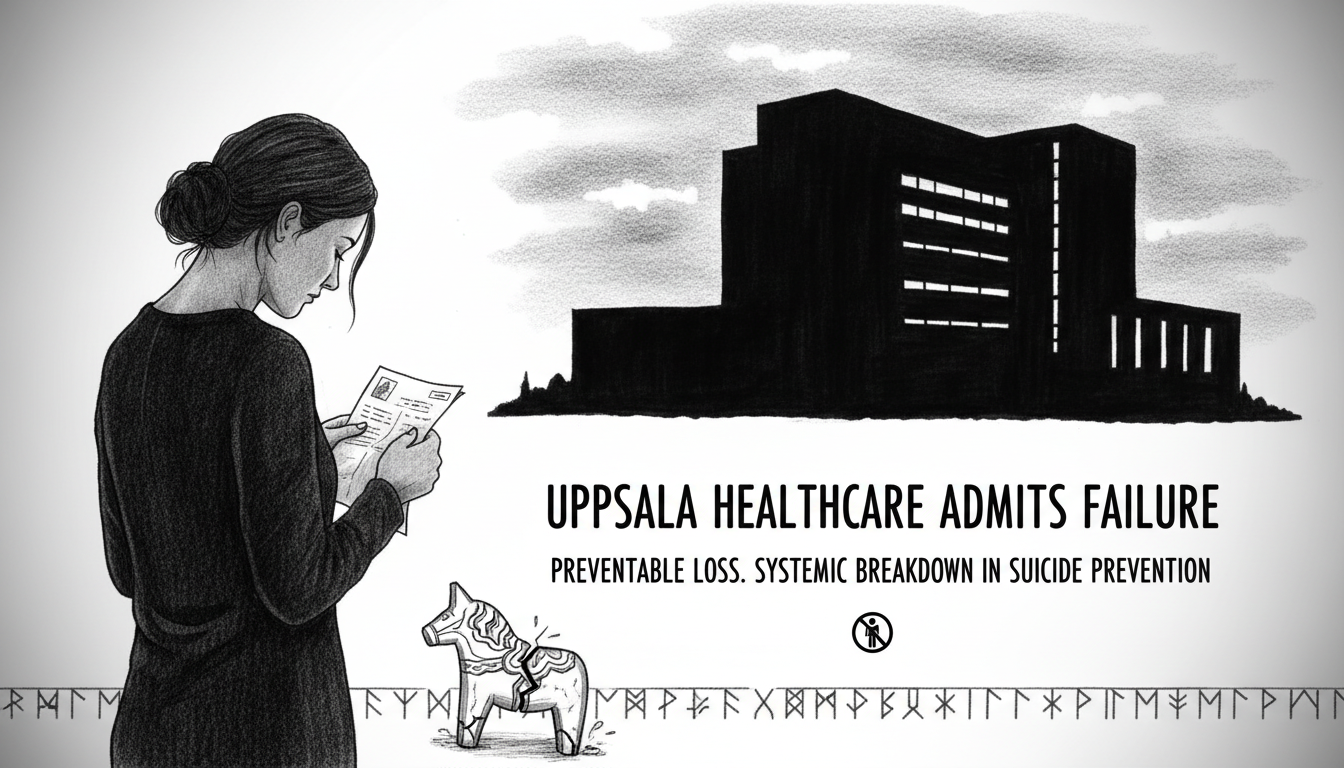A Swedish mother desperately sought help for her son Andreas the night before he took his own life. She called the national healthcare hotline 1177, hoping to secure immediate psychiatric support. Instead, she found herself transferred between different departments without receiving the urgent care her son needed.
The healthcare director for Uppsala Region, Mikael Köhler, acknowledged serious failures in the system. He stated that the healthcare organization bears significant responsibility for what happened. Köhler confirmed that the case has been discussed among emergency psychiatric service leaders.
He indicated that disciplinary actions against staff might follow. The director described the incident as a preventable medical injury. This admission comes amid growing concerns about Sweden's mental healthcare capacity.
Sweden's healthcare system operates through 21 regional councils responsible for medical services. Each region manages its own budget and healthcare priorities. Mental health services often compete for funding against other medical specialties.
Uppsala Region serves approximately 400,000 residents in east-central Sweden. The area includes both urban centers and rural communities. Like many Swedish regions, Uppsala faces challenges in recruiting and retaining psychiatric specialists.
The national 1177 healthcare advice line typically serves as the first point of contact for non-emergency medical concerns. Callers can receive guidance about symptoms and appropriate care levels. In mental health crises, operators should direct patients to emergency psychiatric services.
Sweden has implemented various suicide prevention strategies in recent years. The country established a national center for suicide research and prevention. Multiple support organizations operate helplines and chat services for those in distress.
Mental health advocates have long warned about strained emergency psychiatric services. Wait times for non-acute mental healthcare can extend for months in some regions. The COVID-19 pandemic further increased pressure on these services.
This case highlights systemic challenges in Sweden's otherwise comprehensive healthcare system. While Sweden boasts universal healthcare coverage, mental health services often receive less funding than physical health services. The tragedy raises questions about whether regional healthcare authorities prioritize mental health appropriately.
The director's candid admission of failure represents a significant departure from typical bureaucratic responses. Such openness about systemic shortcomings could prompt broader reforms. Other Swedish regions will likely examine their own emergency psychiatric protocols following this case.
For immediate mental health support, contact psychiatric emergency departments or call 112 during crises. Multiple organizations provide support services, including Mind Suicide Prevention Line and Bris children's rights organization. The healthcare guide 1177 offers guidance on accessing appropriate care services.
This tragedy underscores the urgent need for improved mental health crisis response systems throughout Sweden. The gap between emergency physical healthcare and emergency psychiatric care remains substantial in many regions. Without adequate funding and staffing, similar preventable tragedies may continue occurring.

